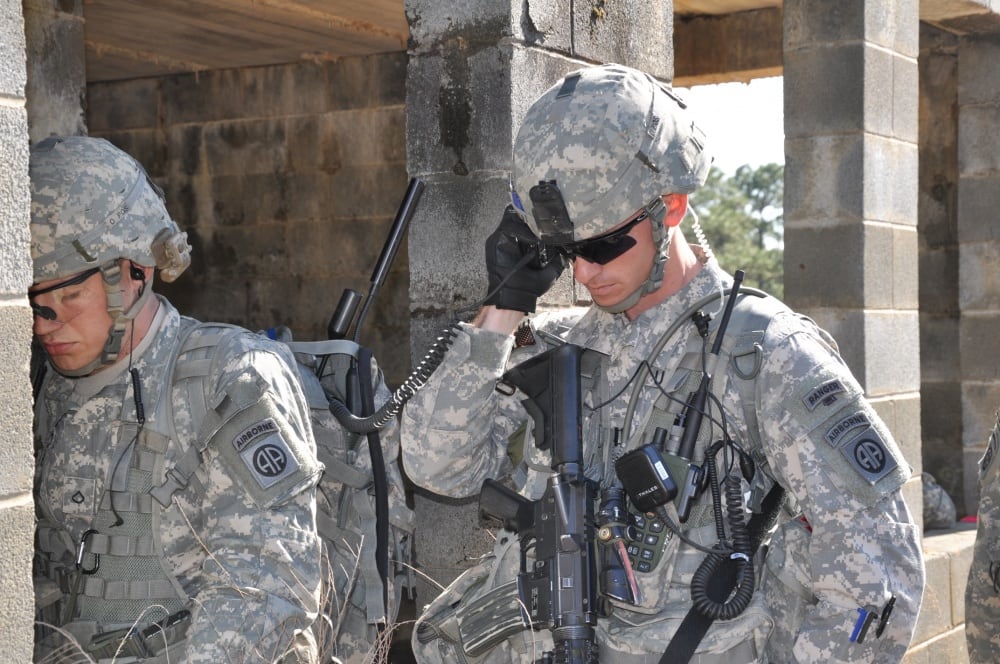The Government Accountability Office has denied a protest about an impending soldier radio contract that could be worth nearly $4 billion.
Persistent Systems, which builds mobile network radio technology, filed a protest on Oct. 12, 2017, challenging the Army’s request for proposals to acquire 2-channel handheld leader radios.
At question was a requirement that the radios have the capability to communicate with Single Channel Ground and Airborne Radio (SINCGARS) and Soldier Radio Waveform (SRW) without a secondary radio. This new independent two-channel leader radio is the successor to the single-channel Rifleman Radio, currently in limited use. The Rifleman Radio exclusively uses SRW, which soldiers use to transmit vital voice and data over short distances, within teams. For voice communications between teams or further back to other assets, soldiers usually rely on a separate radio that runs SINCGARS.

In order to access SINCGARS, Persistent’s radio, known as the MPU5, must be routed through a separate fielded radio, either a manpack or one mounted on a nearby vehicle. Routing the communications through the mounted radio, the company argues, allows for better range and stronger performance than merely relying on the strength of a handheld radio. The MPU5 also ditches SRW in favor of a mobile ad hoc networking waveform, which the company insists is a far superior waveform for transmitting data.
These deviations from the details of the Army’s proposal, however, led the service to deem Persistent’s MPU5 radio unacceptable.
In response, the company argued that the Army’s insistence on procuring a single independent radio is unduly restrictive of competition and ultimately counterproductive in reaching their larger goal of improving the service’s tactical networking systems. According to Persistent, sufficient market research would have revealed the superiority of their radios.
“Throughout the entire process, we were never once afforded an opportunity to meet with the Army to describe our proposed solution,” said Leslie Hulser, director of programs at Persistent Systems LLC to C4ISRNET. “[The Army] was always stubbornly committed to a two-channel version of Rifleman Radio that would run the SINCGARS and SRW waveforms.”
The GAO denied the protest Jan. 16.
“The Army has reasonably identified the need for its requirement that the radios be able to independently and autonomously communicate without the need to rely on secondary radio infrastructure,” GAO General Counsel Thomas Armstrong wrote.
The Army had previously signaled it would award contracts to Harris Corp. and Thales to produce the next-generation of the Rifleman Radio, but appeared to open the contract up for competition when it requested information on a two-channel radio capable of handling both data and voice communications. Persistent maintains that competitive appearance was entirely for show.
“As far as we know, the only people who ever met with the Army were the incumbent contractors who had worked on the now-defunct Rifleman Radio program,” Hulser said in the statement, referring to Harris Corp. and Thales.








